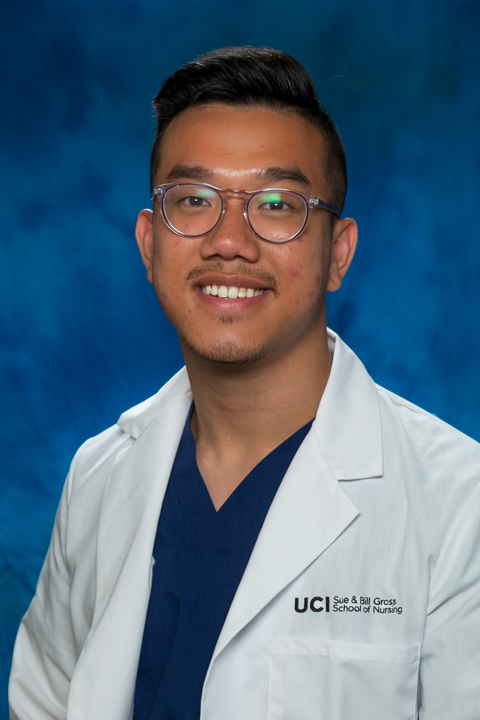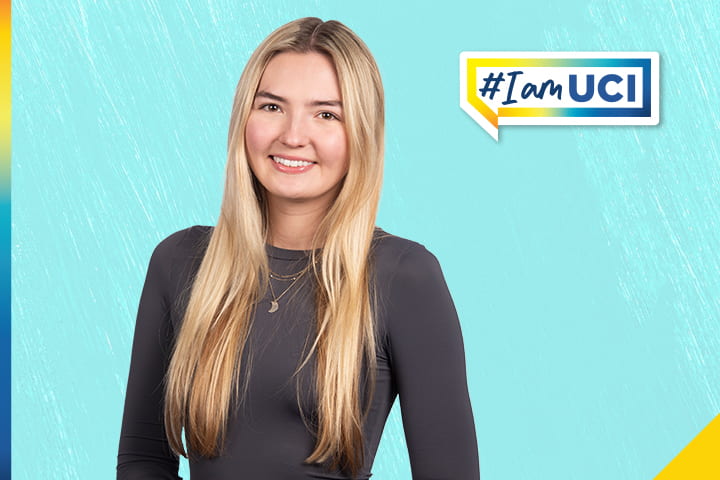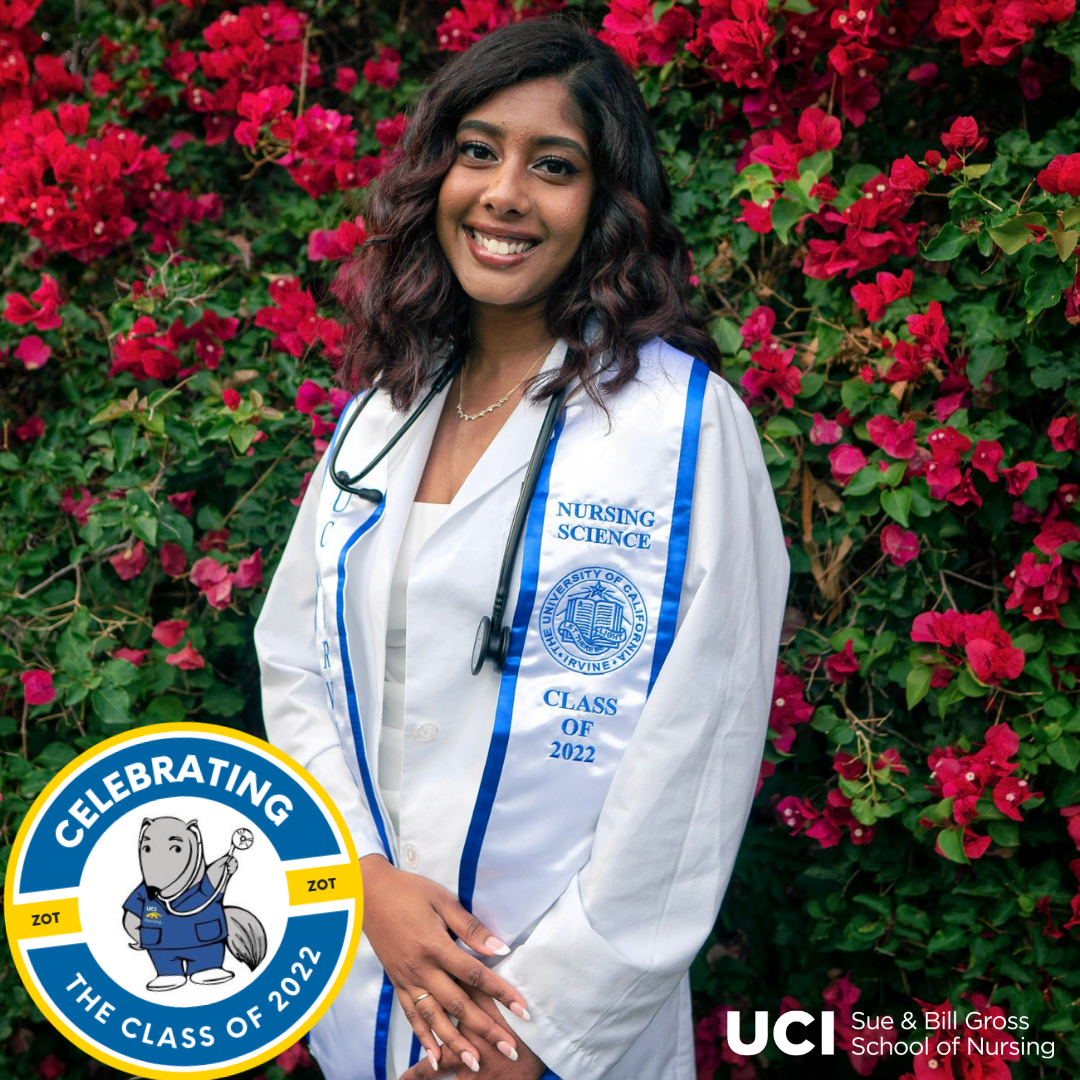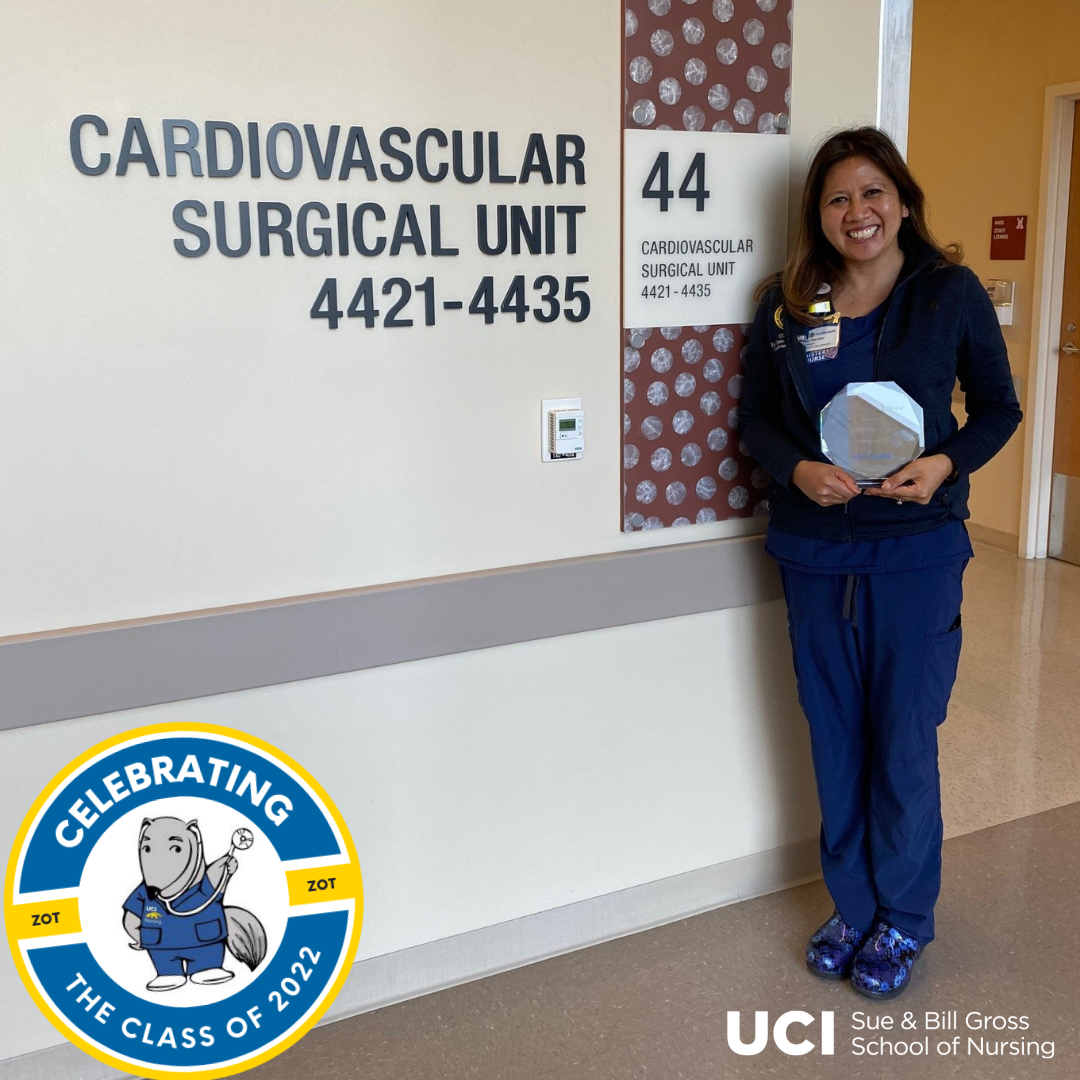
First-year MEPN student, Huy C. Nguyen, jumped into his master’s program this year with both feet, reaching out to Professor and Associate Dean of Academic Programs Dave Holmes to work together on an independent research study project before school had even started. This quarter, aside from working as a Graduate Research Assistant with Dr. Holmes, Huy is also a Teaching Assistant in the Department of Cell and Developmental Biology. In addition, Huy has recently been approved to be a Nursing Volunteer in the Critical Care Unit/Medical Intensive Care Units at UC Irvine Medical Center. We asked Huy to tell us about what motivated his independent study with Dr. Dave Holmes, and how the experience has influenced him as he contemplates his nursing career.
What lead you to do this independent study?
Huy: Throughout my undergraduate career in Psychobiology and Physiological Psychology at UCLA, I always had a special interest in public health and community health. The focus on community health at UCI Sue & Bill Gross School of Nursing is why I chose UCI over other schools. My research interests are mainly centered around the LGBTQIA+ community, HIV/AIDS, queer health, and vulnerable populations such as veterans with dual diagnoses and homeless folks. I spent 4 years at UCLA AIDS Institute, conducting scientific research on HIV-related inflammation and immune dysfunction with the humanized mouse model. I wanted to continue my research within the HIV/AIDS arena— but now I wanted to do it with the nursing and public health perspective. So when I heard that Professor Dave Holmes, a leading expert in the field of LGBTQ public health, was coming to UCI Sue & Bill Gross School of Nursing, I was overjoyed at the possibility to be able to work under his guidance. So I reached out to him before he even officially arrived in Irvine, and inquired about a possible collaboration with him. The rest is history.
What was the nature of your research project with Dr. Holmes?
Huy: I worked with Dr. Holmes on a research project that aims to get a better understanding of risky sexual practices within the participants in a certain gay subculture that practices high-risk sex. Our goal was to identify ways in which this population addresses and reduces the risks associated with STIs and HIV transmission, and to promote the development of innovative public health strategies/messages that take into account the desires and expectations of this particular population. This research project was conducted in one community in Southern California, and used the post-structuralist theoretical framework based on the works of Gilles Deleuze and Felix Guattari. My specific role in the research was to conduct literature review, code and analyze data, and disseminate the results.
What are your reflections on this research experience?
Huy: Being able to conduct research with Dr. Holmes was a dream come true for me, especially during my first quarter of nursing school. Working one-on-one with a renowned researcher and mentor, learning how to code and conduct social research, analyzing data, and having a possible publication in a nursing journal was nothing short of amazing. I entered nursing school with the intention of being open to the wide array of possibilities of the nursing career, eager to explore the many nursing roles in healthcare, including clinical work, education, administration, advanced-practice clinical roles, and nursing research. Having the opportunity to work with Dr. Holmes has been an eye-opening experience into what nursing academia and research entails, and it has solidified my interest in making sure that whatever career path I choose, research will be an integral part of it. Not only did he teach me the nuts and bolts of qualitative public health research, he also changed my life and inspired me to get a PhD and pursue a career in nursing academia.






Follow Us!